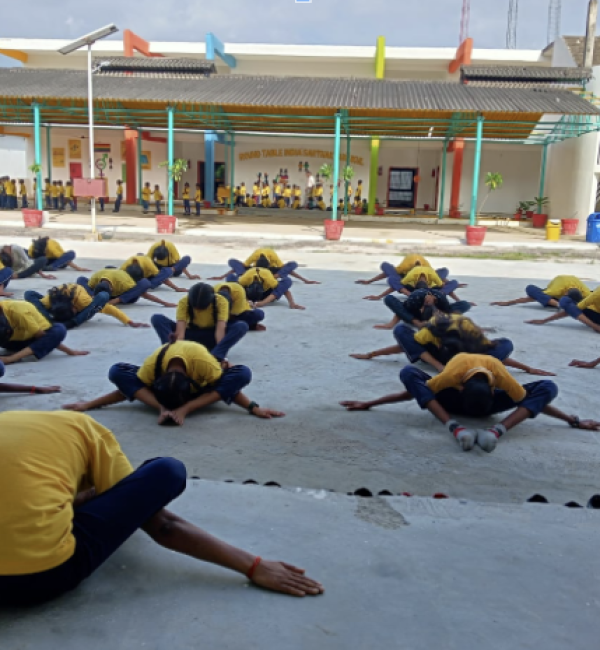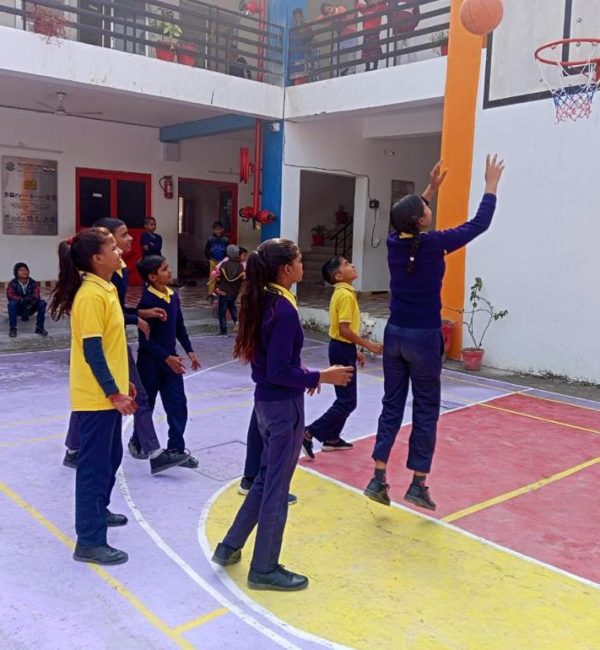Sarthak Gurukul
Home / RTI Sarthak Gurukul
Sarthak Gurukul
“When children come to Yellow Rooms after school, they need to do a bit of unlearning to reconcile the difference in approaches between their school and Sarthak Yellow Rooms. We started imagining “what if we have our own formal school that incorporates all the elements of the Yellow Rooms into the formal schooling structure”, and that’s how Sarthak Gurukul was born.”
Sarthak Gurukul is a model rural school that incorporates all the elements of a Sarthak Yellow Rooms into the formal rural school structure. Sarthak Gurukul offers marginalised children from rural backgrounds equitable, happy, gender-sensitive, well structured and digitally aided formal education at minimal cost.
The Sarthak Gurukul offers the children:
1) Gender equitable and gender sensitive environment,
2) Instruction that breaks caste consciousness and caste barriers;
3) Smart pedagogy using a mix of in-person and digital instruction;
4) Physical fitness, yoga and sports with equal participation of girls; and
5) Practical life skills orientation.
Gurukul Infrastructure:
Gurukul has spacious classrooms for facilitating interactive learning of children. It has separate toilets for boys and girls. Children have access to clean drinking water and play areas. Gurukul also has a basketball court and promotes gender inclusive sports among children.
Apart from this, Gurukul has two labs-
1) Digital Lab: This school has a digital lab with 35 desktops and internet connection.
2) Science Lab: Students have access to a science laboratory which houses functional science models.
Elements of Yellow Rooms that are a part of Gurukul:

1. Holistic Development: Focus on turning marginalized children into well-rounded individuals through education, financial empowerment, social and emotional and physical wellness.
2. Comprehensive Approach: Addressing issues beyond education, including substance abuse, hygiene, health, and mental health.
3. STEM Focus: Promoting STEM education from early childhood with a special emphasis on girls, leading to improved learning levels and academic performance.
4. SEPEt Curriculum: Covers social-emotional and ethical activities, including values, health, gender equality, and more. Using digital tools, arts, yoga, inspirational talks, soft skill sessions, and workshops to impact children deeply.
5. Nutritional and Wellness Support: Regular provision of fruits and school essentials like uniforms, stationery and clean drinking water.
6. Gender Equitable Environment: Creating a gender-equitable environment through sports, sessions, workshops, and gender-neutral practices.
7. Life Skills and Sensitivity Towards Nature: Committees of children formed to improve community environment and animal care.
Located in Sonari village in Sitapur district, Gurukul is attended by about 700 children from 70 villages.


